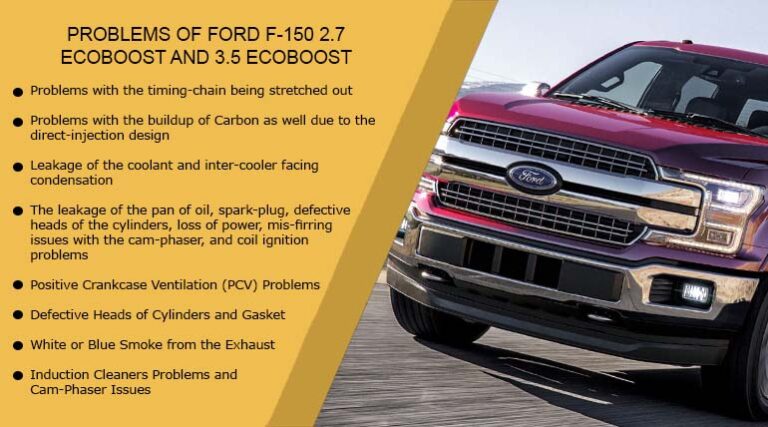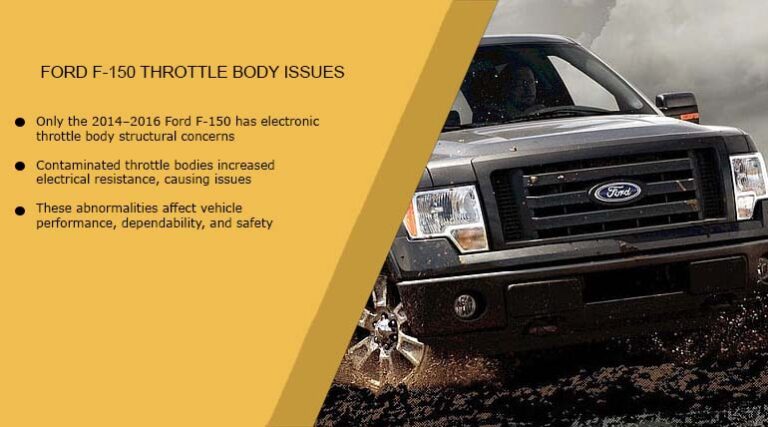Types of Fuel Ford F-250 And Ford F-350 Use To Function Well
The Ford F-250 and F-350 are two of Ford Motor Company’s most well-liked and robust pickup trucks. Ford’s Super Duty family includes these workhorse trucks, which are built to last and have impressive towing and hauling capacities. In this article, the discussion will be all about the types of fuel Ford F250 and Ford F350 use to function well.
There are several significant distinctions between the F-250 and F-350, although they share many similarities in design, attributes, and capabilities.
A Brief Overview!
To summarize, Ford manufacturers recommend using gasoline for gasoline-based engines. The suggested fuel for Ford F250/F350 5.4 L,6.8 L, and 7.3 L gasoline engines is a regular unleaded 87 octane-graded gasoline. It is advised to use Ultra-Low-Sulfur diesel fuel for only diesel-based engines. Top-tier detergent gasoline is the only allowed additive other than RFG and maximum Ethanol-10.
Types Of Fuel Ford F-250 And Ford F-350 Use (All Generations)
All the data below regarding the types of fuel Ford F-250 and Ford F-350 use is gathered using Ford owner’s manuals. Whether an engine runs on petrol or diesel usually dictates the kind of fuel used. Let’s continue exploring the types of energy according to the type of engines for each F-250 and F-350.
Ford F250/F350 – 1st Generation (1999 to 2007)
The gasoline-based engines, i.e., 5.4 L V-8 and 6.4 L V-10, utilize a regular unleaded, 87 octane gasoline. RFGs and ethanol not greater than 10% can also be used. According to the owner’s Ford F250/F350 manual, premium gasoline with 91 octane-graded gasoline or higher should be used. It is beneficial, especially during summer or heavy-duty tasks such as towing. learn more about the difference between gasoline and diesel engine in the article we recently covered.
7.3 L, 6.0 L, and 6.4 L are diesel-based engines requiring Ultra-Low-Sulfur diesel fuel (1 D or 2 D) to perform efficiently.
Following are the engines offered by the 1st generation of Ford F250/F350;
- 5.4 L V8
- 6.4 L V10
- 7.3 L (diesel engine)
- 6.0 L (diesel engine)
- 6.4 L (diesel engine)
Ford F250/F350 – 2nd Generation (2008 to 2010)
Following are the engines offered by the 2nd generation of Ford F250/F350;
- 5.4 L V8
- 6.4 L V10
- 7.3 L (diesel engine)
- 6.0 L (diesel engine)
- 6.4 L (diesel engine)
The gasoline-based engines, i.e., 5.4 L V-8 and 6.4 L V-10, utilize a regular unleaded, 87 octane gasoline. RFGs and ethanol not greater than 10% can also be used. According to the owner’s Ford F250/F350 manual, premium gasoline with 91 octane-graded gasoline or higher should be used. It is beneficial to use, especially in summer or during heavy-duty tasks such as towing.
The other mentioned engines are diesel-based engines, which require Ultra-Low-Sulfur diesel fuel (1 D or 2 D) to perform efficiently.
Ford F250/F350 – 3rd Generation (2011 to 2019)
Ford F250/F350 third generation is recommended to use top-tier detergent gasoline. Utilize a regular gasoline (87-octane rating). For flex-fuel engines, Ethanol-85 can be used. Use an Ultra-Low-Sulfur diesel fuel for diesel-based engines; however, preferable is a top-tier detergent diesel fuel. Following engines are offered by 3rd generation Ford F/250/F350;
- 6.2 L6.8 L
- 6.7 L (V8 Diesel Engine)
Ford F250/F350 – 4th Generation (2020 to Present)
Ford F250/F350 third generation is recommended to use top-tier detergent gasoline Utilize a regular 87 graded gasoline. In the year 2020, engine 6.8 L was swapped for engine 7.3 L. For flex-fuel engines, E-85 can be used. Use an Ultra-Low-Sulfur diesel fuel for diesel-based engines; however, preferable is a top-tier detergent diesel fuel. Following engines are offered by 3rd generation Ford F/250/F350;
- 6.2 L
- 7.3 L
- 6.7 L (V8 Diesel Engine)

Ford F-250 And Ford F-350 -Fuels Alternatives Other Than Conventional Gasoline
Below is all the required information regarding the fuel substitutes obtainable in the arcade besides conventional gasoline. Do they have negative or positive impacts on the engine performance? Let’s dig it all together!
Biodiesels
Ford allows a maximum of 20% Biodiesel for the diesel-based engines of Ford F250/F350.However, Biodiesel can’t be used in gasoline engines.
Reformulated Gasoline Fuel (RFG)
For cleaner burning, EPA recommends using Reformulated Gasoline Fuel (RFG) for gasoline engines. Hence, Ford allows RFGs for all its F250 and F350 generations and engines.
Ford F-250 & Ford F-350 Owner’s Recommended Fuel Type
F250 and F350 owner (Ford) recommends using a minimum of 87 octane-graded gasoline for the gasoline-based engines. Moreover, the suggested fuel for Ford F250/F350 5.4 L,6.8 L, and 7.3 L gasoline engines is a regular unleaded 87 octane-graded gasoline. It is advised to use Ultra-Low-Sulfur diesel fuel for only diesel-based engines. Top-tier detergent gasoline is the only allowed additive other than RFG and maximum Ethanol-10.
Do You Know?
Ford Explorer and Ford Fusion use fuels which are similar to the ones used by Ford F250 and Ford F350.
Gasoline/Oxygenated Blends (Ethanol)
Chemical compounds whose molecular structure includes oxygen are known as oxygenates. Ethanol is a widely utilized oxygenate in the gas industry. Moreover, most U.S.-produced gasoline has 10% ethanol added to comply with government regulations.
Ford warns that Flex Fuel cars shouldn’t run on ethanol blends with an ethanol content higher than 85%. The ethanol content should not be more than 10% when using ordinary unleaded gasoline in non-Flex gasoline cars.
Flex-Fuel may be used in your vehicle if the fuel cap is yellow.
Gas/Fuel With Added Cleaning-Agents
Ford only allows the addition of top-tier detergent gasoline in its automobiles. Other than detergent gasoline, no other gasoline additive is allowed. The warranty might not cover the cost of repairs if they were brought on by using illegal fuels for which the vehicle was not intended.
Methylcyclopentadienyl Manganese Tricarbonyl (MMT)
Afon Chemicals are the chief producer of MMT. It was known to be a gasoline enhancer, but using it during the current era is prohibited due to its negative impacts on the engine’s functionality. However, it can only be used as a race gas. It also leads to knocking of engine.
This is what Ford F250/F350 owner manual states about the usage of MMT;
“Methylcyclopentadienyl manganese tricarbonyl (MMT), a gasoline additive based on manganese, reduces engine performance and affects the pollution control system when used in fuels.”
Which Additives Are Prohibited To Be Used In F-250 And Ford F-350?
The below table represent the additives not allowed to be used in Ford F-250 and Ford F-350;
| Prohibited Additives |
| Solvents Methanol Silicon Any metal-based ones Kerosene Additives based on metals Kerosene/paraffin Manganese-based combinations Lead-based fuels |
What is the Cost of Filling Up the Ford F-250 & Ford F-350?
An Ultra-Low-Sulfur Diesel costs $2.45 a gallon as of November 1, 2021. The cost to fill a Ford F250/350 might vary from $46.55 to $162.93.
Similarly, the national average price of standard unleaded petrol in the United States is now $3.42 per gallon. however, depending on the version of F250/350, filling the tank might cost anywhere from $64.98 to $164.16. If you have the largest gasoline tank and live in California, you will spend roughly $225 on petrol at $4.706 per gallon.
Conclusion
To conclude, Ford F-250 and F-350 are two of Ford Motor Company’s most well-liked and robust pickup trucks. Ford’s Super Duty family includes these workhorse trucks, which are built to last and have impressive towing and hauling capacities.
Hence, Ford manufacturers recommend using gasoline for gasoline-based engines. The suggested fuel for Ford F250/F350 5.4 L, 6.8 L, and 7.3 L gasoline engines is a regular unleaded 87 octane-graded gasoline. However, It is advised to use Ultra-Low-Sulfur diesel fuel for only diesel-based engines. Top-tier detergent gasoline is the only allowed additive other than RFG and maximum Ethanol-10.





